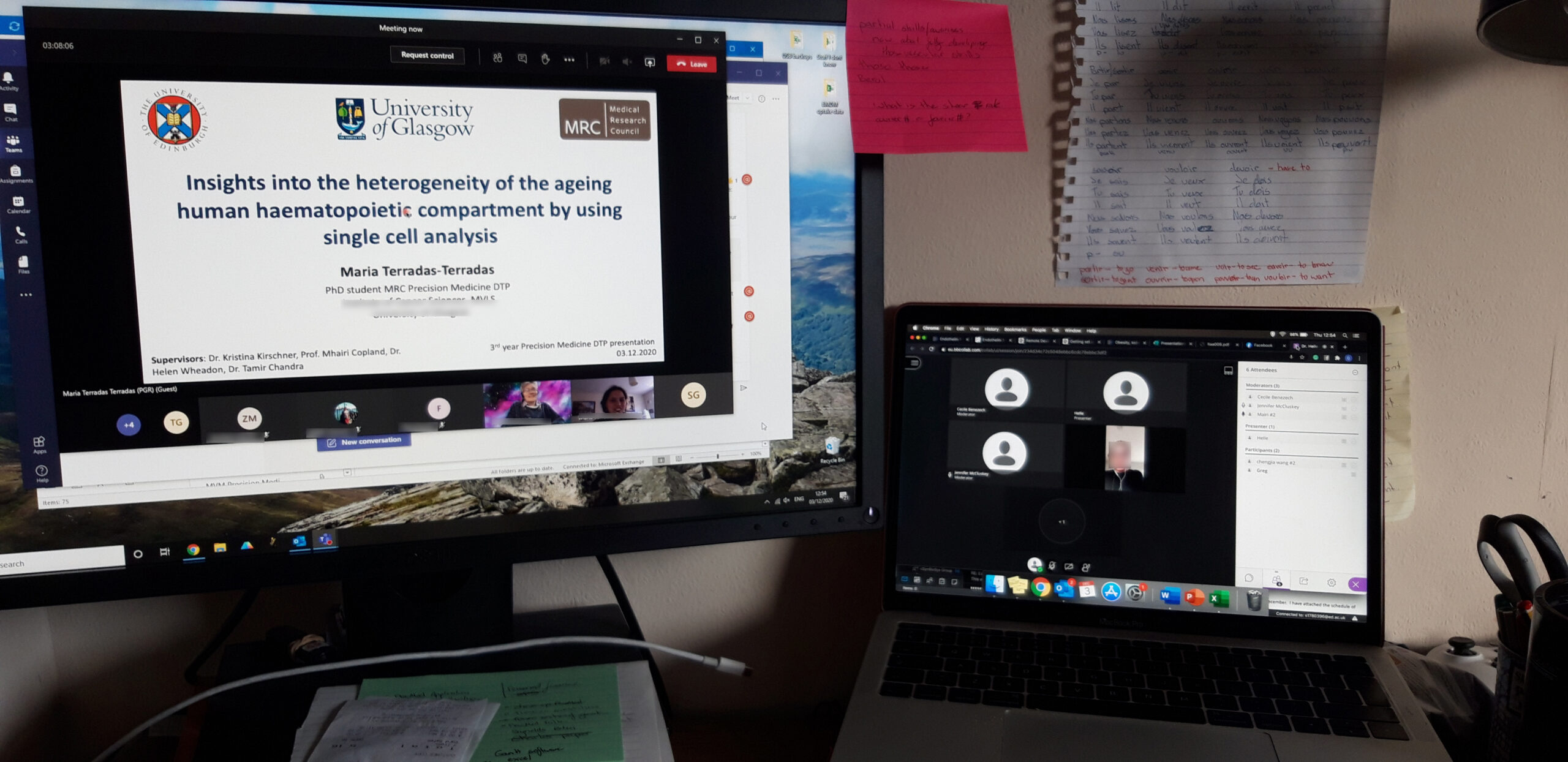Precision Medicine…

…by Greg / from the United Kingdom / PhD Precision Medicine / 4th Year
Current status. Location: Ayrshire, UK. Weather: rain. Beverage: water. Currently reading: Fooled by Randomness by NNT & A Christmas Carol by Charles Dickens.
I’m Greg, and I have been a scientist for the last nine years. I’m studying for my PhD in physiology. I’m currently on annual leave for Christmas, but this blog is all about precision medicine.
I am a member of the Precision Medicine DTP at the Edinburgh University. Precision medicine is all about separating diseases into smaller groups. This is usually for a treatment but can also be for diagnostic purposes. Precision medicine is classically applied in cancer. A patient’s cancer is usually described from its point of origin. For example, renal cancer begins in the kidneys, liver cancer in the liver, etc. When the cancer is removed, the tissue is sent for pathology to provide a molecular description of the tumour and that molecular description is used to get a better idea of the disease progression and predict which treatments are most likely to be effective. The classic example of this is the presence of HER2 in breast cancer indicates that Herceptin can be effective. This approach has been one of the many reasons more people are surviving cancer. For that reason, precision medicine has attracted other interest from other fields. I study hypertension which is a combination of vascular biology, cardiology and nephrology. I use a precision medicine approach to identify differences in the immune system and how the different affects it has on blood pressure in men and women.
The precision medicine programme is split between the University of Edinburgh and the University of Glasgow and is funded by the Medical Research Council. For me, the training was 3.5 years long with 6 months extra for writing however, due to Covid-19, it is now 4 years for me. The programme is a little different to others because it has a heavy focus on teaching. Unlike others, in the first year I had to do 30 credits of postgraduate modules (I choose a project on practical systems biology and another on medical statistics). I also had the opportunity to complete a business innovation course later in my studies and travel for a 1-week course at the Karolinska Institut in Stockholm, Sweden. All of this was fully funded! The course isn’t only about teaching and it does have a strong research focus especially towards big data and interdisciplinary skills development.
Last month, we had the annual precision medicine conference. This year, as with everything, it was online. It was my first online 3-day conference. I can’t say this enough but sitting listening to people talk computer screen for days is tough! However, it was nice to see many of my friends presenting their research and see how well we have all developed over the last 3.5 years. As well as lots of exciting research (I am biased here), I gave a talk updating my colleagues on my recent findings in hypertension (more here). We had some talks on thesis writing, careers and a thesis writing masterclass. I’m definitely going to make a few changes to my thesis drafts (perhaps more on that another time)! The conference nicely bookended an unusual year and for the remaining two weeks I worked on completing my remaining tasks for the year and preparing for the next round of experiments in January and February 2021.
I think that concludes my blog for the year. All that is left to say is Merry Christmas.
You can find out more about my life in Edinburgh and science on my Twitter @endothelin1 and about my career on LinkedIn.



